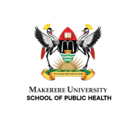Makerere University through the School of Public Health (MakSPH), in collaboration with a number of districts, and the Ministry of Health (MOH) started implementing a Master of Public Health (MPH) degree programme, popularly referred to as the Public Health Schools Without Walls (PHSWOW) since October 1994. This is a competency-based training programme that uses high quality and sustainable training strategies meant to produce public health leaders and workers who are able to address public health challenges at the national, programme, district and community levels in Uganda and beyond. This was particularly meant to produce public health leaders and managers to support the Uganda decentralization policy.

